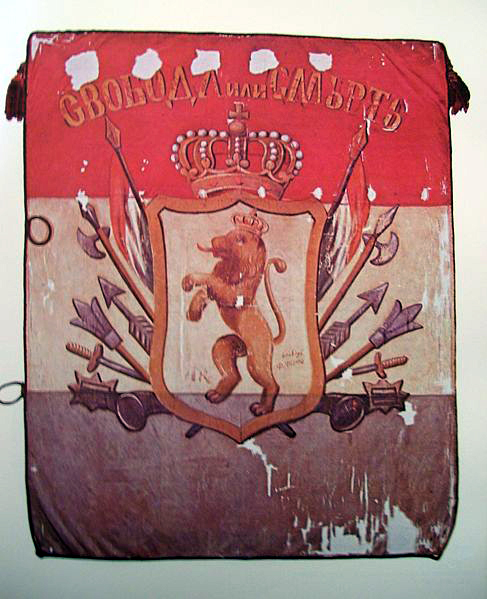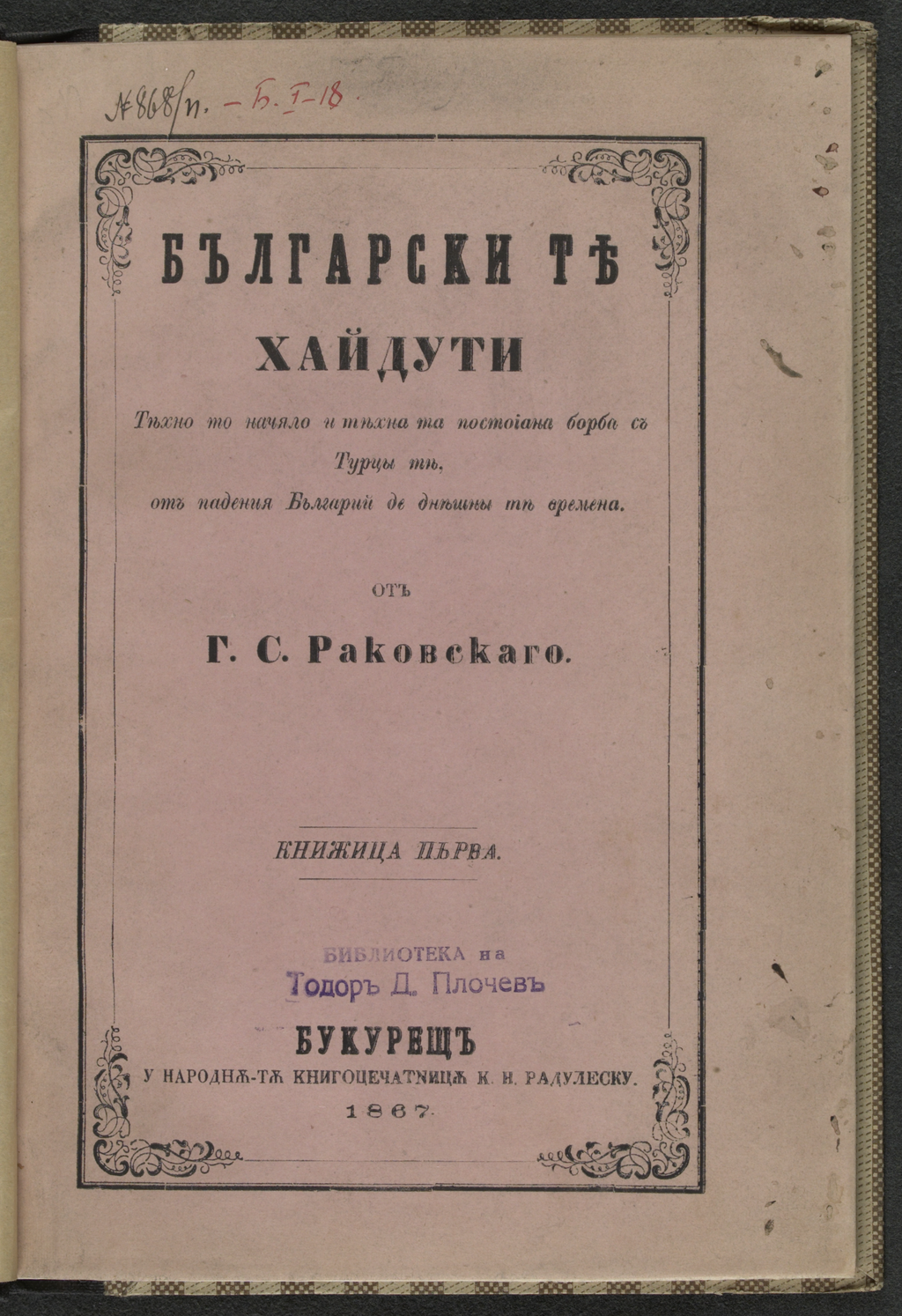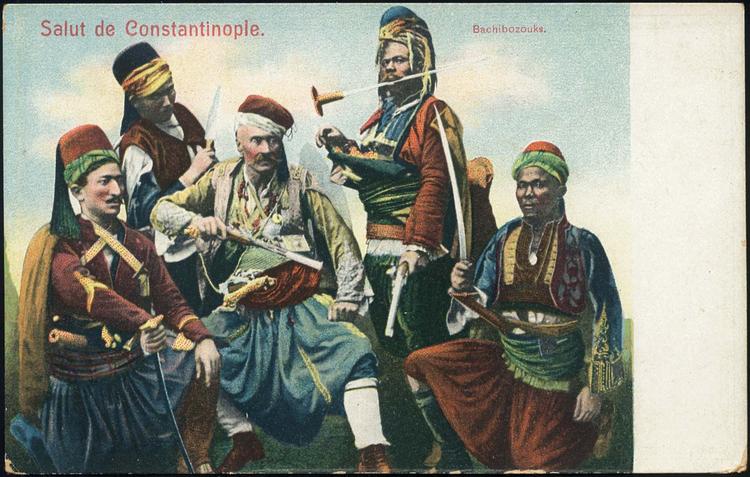|
Filip Totyu
Todor Todorov Topalov (or Topalski) ( bg, Тодор Тодоров Топалов or Топалски; 1830-23 March 1907), better known under the pseudonym Filip Totyu (Филип Тотю), was a Bulgarian revolutionary of the Bulgarian National Revival period and the ''voivode'' of an armed band of volunteers. Totyu was born in the hamlet of Gartsite, today part of the village of Voneshta Voda, near Kilifarevo, Veliko Tarnovo Province, to the family of a cattle dealer. He studied in Tarnovo in 1840 and engaged in trade after 1842. Around 1850, he had a conflict with the Ottoman authorities which forced him to flee into the Balkan Mountains with a group of friends and become a ''hajduk''. His band's area of operation were the regions of Tarnovo, Elena and later also Nova Zagora. Although he was captured and interned in the Tarnovo and Sliven prisons several times, he managed to escape and return to his hajduk activities, leading to the Ottomans announcing a big reward for his ... [...More Info...] [...Related Items...] OR: [Wikipedia] [Google] [Baidu] |
Filip Totyu-zname
Filip () is a masculine given name and a surname, cognate to Philip. In Croatia, the name Filip was among the most common masculine given names in the 2000s. Notable people with the name include: ; Given name * Filip Barović (born 1990), Montenegrin basketball player * Filip Đorđević (born 1987), Serbian footballer * Filip Filipović (born 1987), Serbian water polo player, Olympic champion * Filip Hološko (born 1984), Slovak footballer * Filip Cristian Jianu (born 2001), Romanian tennis player * Filip Marković (born 1992), Serbian footballer * Filip Mișea (1873–1944), Aromanian activist, physician and politician * Filip Petrušev (born 2000), Serbian basketball player * Filip Ugran (born 2002), Romanian race car driver * Filip Verlinden (born 1982), Belgian kickboxer * Filip Višnjić (1757–1834), Bosnian Serb poet and guslar * Filip Zubčić (born 1993), Croatian alpine skier ; Surname * Miroslav Filip (1928–2009), Czech chess grandmaster * Ota Filip (1930-2018), ... [...More Info...] [...Related Items...] OR: [Wikipedia] [Google] [Baidu] |
Georgi Rakovski
Georgi Stoykov Rakovski ( bg, Георги Стойков Раковски) (1821 – 9 October 1867), known also Georgi Sava Rakovski (), born Sabi Stoykov Popovich (), was a 19th-century Bulgarian revolutionary, freemason, writer and an important figure of the Bulgarian National Revival and resistance against Ottoman rule. Biography Early life He was born in Kotel to a wealthy and patriotic family. He attended monastery schools in his hometown and in Karlovo, and in 1837, went to study in the Greek Orthodox College in Istanbul. In 1841, he was sentenced to death whilst involved in revolutionary plans against the Turks, but thanks to a Greek friend,he managed to escape to Marseille. A year-and-a-half later, he returned to Kotel, only to be arrested again in 1845. Sent to Istanbul for seven years of solitary confinement, he was released in May 1848. He decided to remain in Istanbul, where he worked as a lawyer and tradesman, and took part in campaigns for a Bulgarian na ... [...More Info...] [...Related Items...] OR: [Wikipedia] [Google] [Baidu] |
Bulgarian Revolutionary Central Committee
The Bulgarian Revolutionary Central Committee ( bg, Български революционен централен комитет, ''Balgarski revolyutsionen tsentralen komitet'') or BRCC was a Bulgarian revolutionary organisation founded in 1869 among the Bulgarian emigrant circles in Romania. The decisive influence for the establishment of the committee was exerted by the ''Svoboda'' ("Freedom") newspaper which Lyuben Karavelov began to publish in the autumn of 1869. Some of the other revolutionaries who took active part in the formation and work of the BRCK were Panayot Hitov, Vasil Levski and Dimitar Tsenovich. Karavelov was elected chairman of the BRCK in the spring of 1870. He also prepared the first programme of the organisation (promulgated in Geneva on 1 August 1870), which envisaged the liberation of Bulgaria through a nationwide revolution and the establishment of a democratic republic. By the end of 1871, both Karavelov and Vasil Levski, the leader of the other Bul ... [...More Info...] [...Related Items...] OR: [Wikipedia] [Google] [Baidu] |
Hristo Botev
Hristo Botev ( bg, Христо Ботев, ), born Hristo Botyov Petkov (Христо Ботьов Петков; – ), was a Bulgarian revolutionary and poet. Botev is considered by Bulgarians to be a symbolic historical figure and national hero. His poetry is a prime example of the literature of the Bulgarian National Revival, though he is considered to be ahead of his contemporaries in his political, philosophical, and aesthetic views. Biography Early years Botev was born in Kalofer (some historians suggested that he was born in Karlovo and after several days was brought to Kalofer). His father, Botyo Petkov (1815–1869), was a teacher and one of the most significant figures of the late period of the Bulgarian National Revival towards the end of the Ottoman occupation. He had a strong influence on his son during the latter's youth. In 1863, after completing his elementary education in Kalofer, Botev was sent by his father to a high school in Odessa.Trencsényi, Kop ... [...More Info...] [...Related Items...] OR: [Wikipedia] [Google] [Baidu] |
Herzegovina Uprising (1875-1878)
Herzegovina uprising or Herzegovinian uprising may refer to: * Herzegovina uprising (1596–97), fought by Serbs in Herzegovina against the Ottoman Empire, 1596–1597 * Herzegovina uprising (1852–62), fought by Serbs in Herzegovina against the Ottoman Empire, 1852–1862 * Herzegovina uprising (1875–77), fought by Serbs in Herzegovina against the Ottoman Empire, 1875–1877 * June 1941 uprising in eastern Herzegovina, fought by Serbs in eastern Herzegovina against Ustaše in 1941 See also * Herzegovina (other) * Herzegovinian (other) * Uprising in Bosnia and Herzegovina (other) * Serbian Uprising (other) Serbian Uprising can refer to: * Serbian Uprising of 1594 (in Banat) * Serbian Uprising of 1596 (in Herzegovina) * Serbian Uprising of 1737 (in Raška) * Serbian Uprising of 1788 (in Pomoravlje) * Serbian Uprising of 1804 (in central Serbia) * ... {{disambiguation Herzegovina ... [...More Info...] [...Related Items...] OR: [Wikipedia] [Google] [Baidu] |
Russia
Russia (, , ), or the Russian Federation, is a List of transcontinental countries, transcontinental country spanning Eastern Europe and North Asia, Northern Asia. It is the List of countries and dependencies by area, largest country in the world, with its internationally recognised territory covering , and encompassing one-eighth of Earth's inhabitable landmass. Russia extends across Time in Russia, eleven time zones and shares Borders of Russia, land boundaries with fourteen countries, more than List of countries and territories by land borders, any other country but China. It is the List of countries and dependencies by population, world's ninth-most populous country and List of European countries by population, Europe's most populous country, with a population of 146 million people. The country's capital and List of cities and towns in Russia by population, largest city is Moscow, the List of European cities by population within city limits, largest city entirely within E ... [...More Info...] [...Related Items...] OR: [Wikipedia] [Google] [Baidu] |
Bulgarian Legion
) , war= National awakening of Bulgaria , image= , caption=The standard of the Bulgarian Legion , active=1862–1868 , ideology= Bulgarian nationalism , leaders= Georgi Sava Rakovski , groups= , headquarters=Belgrade, Serbia , area= , size= , partof= , predecessor= , successor= Opalchentsi , allies= , opponents= , battles= The Bulgarian Legion ( bg, Българска легия, translit=Balgarska legiya, ) was the name of two military bands formed by Bulgarian volunteers in the Serbian capital of Belgrade in the second part of the 19th century. Their ultimate goal was the liberation of the Bulgarian people from Ottoman rule through coordinated actions with the neighbouring Balkan countries. First Bulgarian Legion The First Bulgarian Legion (Първа българска легия) was established in 1862 by Georgi Sava Rakovski in agreement with the Serbian government. At the time Montenegro was at war with the Ottoman Empire and Serbia itself was planning to join the conflic ... [...More Info...] [...Related Items...] OR: [Wikipedia] [Google] [Baidu] |
Serbia
Serbia (, ; Serbian language, Serbian: , , ), officially the Republic of Serbia (Serbian language, Serbian: , , ), is a landlocked country in Southeast Europe, Southeastern and Central Europe, situated at the crossroads of the Pannonian Basin and the Balkans. It shares land borders with Hungary to the north, Romania to the northeast, Bulgaria to the southeast, North Macedonia to the south, Croatia and Bosnia and Herzegovina to the west, and Montenegro to the southwest, and claims a border with Albania through the Political status of Kosovo, disputed territory of Kosovo. Serbia without Kosovo has about 6.7 million inhabitants, about 8.4 million if Kosvo is included. Its capital Belgrade is also the List of cities in Serbia, largest city. Continuously inhabited since the Paleolithic Age, the territory of modern-day Serbia faced Slavs#Migrations, Slavic migrations in the 6th century, establishing several regional Principality of Serbia (early medieval), states in the early Mid ... [...More Info...] [...Related Items...] OR: [Wikipedia] [Google] [Baidu] |
Botev Peak
Botev Peak ( bg, (връх) Ботев ) is, at above sea level, the highest peak of the Balkan Mountains. It is located close to the geographic centre of Bulgaria, and is part of the Central Balkan National Park. Until 1950, when it was renamed in honour of Bulgarian poet and revolutionary Hristo Botev, the peak was called ''Yumrukchal'' (Юмрукчал, from Ottoman Turkish ''Yumrukçal'', 'a fist-like peak'). A weather station and a radio tower (opened on 10 July 1966) that covers 65% of the country are located on Botev Peak. The average temperature is in January and in July. "Botev Peak" is the main facility of Bulgarian FM and TV broadcasting network. The situation at the top near the geographical center of Bulgaria contribute to national radio broadcasts and television broadcast here to cover more than 65% throughout the country, also in parts of Romania and Turkey. The massif is mainly composed of granite rocks dating from the oligocene — a complex of medium ac ... [...More Info...] [...Related Items...] OR: [Wikipedia] [Google] [Baidu] |
Bashi-bazouk
A bashi-bazouk ( ota, باشی بوزوق , , , roughly "leaderless" or "disorderly") was an irregular soldier of the Ottoman army, raised in times of war. The army chiefly recruited Albanians and Circassians as bashi-bazouks, but recruits came from all ethnic groups of the Ottoman Empire including slaves from Europe or Africa. They had a reputation for bravery, but also as an undisciplined and brutal group, notorious for looting and preying on civilians as a result of a lack of regulation and of the expectation that they would support themselves off the land. Origin and history Although the Ottoman armies always contained mercenaries as well as regular soldiers, the strain on the Ottoman feudal system caused mainly by the Empire's wide expanse required heavier reliance on irregular soldiers. They were armed and maintained by the government, but did not receive pay and did not wear uniforms or distinctive badges. They were motivated to fight mostly by expectations of plun ... [...More Info...] [...Related Items...] OR: [Wikipedia] [Google] [Baidu] |
Sevlievo
Sevlievo ( bg, Севлиево ) List of cities and towns in Bulgaria, is a town in north-central Bulgaria, part of Gabrovo Province. Sevlievo is known as one of the wealthiest towns in Bulgaria owing to the well developed local economy, high employment rate and major foreign investments, such as the American Standard Companies factory. It is the administrative centre of the homonymous Sevlievo Municipality. In 2009, the population of the town was 24,065. History The earliest traces of occupation in the region date back to the late Neolithic period (around the 8th century BC). Some Thracians, Thracian tombs still survive. Hotalich Fortress is the last medieval town. It had been inhabited for more than 1,000 years and functioned as an important defensive center. Hotalich existed for centuries together with the settlement on the site of the contemporary town, known as ''Servi'' and ''Selvi''. In the middle of the 19th century, the development of crafts led to the concentration of ... [...More Info...] [...Related Items...] OR: [Wikipedia] [Google] [Baidu] |





